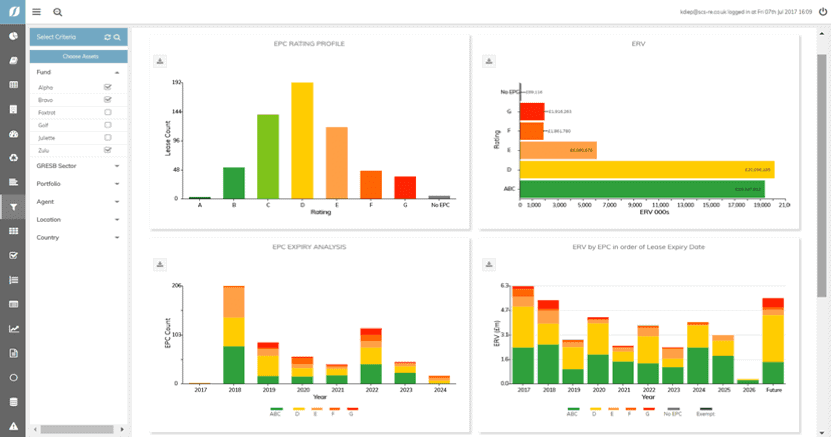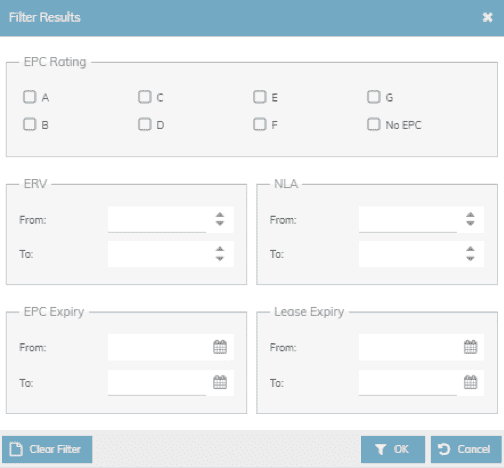SHARE
Thoughts
On 15th October 2019 the Government’s Department for Business, Energy & Industrial Strategy (BEIS) published its future trajectory for Minimum Energy Efficient Standards (MEES) for non-domestic commercial buildings.
The consultation follows the government’s earlier commitments in the year to hit net zero carbon emissions by 2050. Under the current consultation the government propose a new plan to raise the minimum EPC rating from ‘E’ to ‘B’ by 2030.
Under the original MEES legalisation, from 2018 landlords are not permitted to grant any new tenancies or extend/renew any existing properties with an EPC rating of an F or G. Plans to keep the existing regulatory policies are still underway and the legislation will still be extended to ‘all existing leases’ from 1 April 2023. The consultation to raise the minimum EPC rating from an ‘E’ to ‘B’ by 2030 will significantly impact energy management planning for landlords across the UK.
MEES: is it all plain sailing from here?
85 percent of existing commercial buildings in England and Wales would need improvements to achieve the EPC band B target, with investment costs up to £5 billion.
Granted there are stipulations in the proposal, for example if the payback period does not meet the seven-year payback rule, the landlord could still apply for an exemption worth five years. The government are also looking for ‘market-led’ solutions in order to tackle any issues regarding tenant consent to prevent landlords essentially attempting a ‘get out of jail-free’ card.
The consultation has also considered the idea of raising the EPC to a ‘C’ by 2030, or alternatively taking an incremental approach, with milestones for landlords to reach the rating of B by 2030 (for example, 2020 D, 2025, C…etc). However, both are deemed less favourable due to fewer emissions savings between now and 2030 and capacity issues. Could there in fact be a way to incentivise landlords to carry out works?
Overall, the fast-paced movement of the consultation appears positive (from an energy / carbon management perspective), it does go without saying though that the implications of such legislation could result in greater risks for business’ today, if no action is taken.
Are you at risk?
The answer is: you may well be
The government intends that responsibility for the energy efficiency of the building will continue to sit with the landlord. Therefore, failure to comply with regulations will result in fines between £5000- £150,000. All types of non-domestic properties may struggle to sublet standard space without undertaking improvement works, and therefore become difficult to let or sell due to their poor EPC rating. It is well known that landlords face many challenges with the current EPC rating system. EPC calculations are linked to building regulations, which means it makes it harder to achieve a satisfactory rating when targets are continually being strengthened. Therefore, business’ need to be able to identify where the gaps are in their data and ensure those most at risk by the new band increase are adequately prepared.
With the consultation hinting greater rigour in its enforcement, there is no doubt that businesses should look to future proofing their assets against changing regulations in energy efficiency. It’s good to see this as an opportunity! The consultation even announced that the current regulatory framework which only considers the condition of buildings rather than their operational energy efficiency, has now been scheduled in for an additional consultation on the introduction of mandatory ‘in-use’ energy performance ratings in 2020. There is no denying MEES requirements are being accelerated in a short span of time. Therefore, it is expected that we will see more changes in the next coming years.
So, the key question here is how can you as a business combat against this measure? And how can we help you do so?
Well have no fear, EVORA is here…
EVORA have some nifty blogs that explain how your buildings can achieve EPC level B. But for a quick overview:
Landlords should identify where there are gaps are in the data and which are at most risk across their portfolios/funds. Having access to a central database that stores all key information in a consistent format will provide an easily aggregated view of which sites are at risk. EVORA can help clients with the use of its SIERA platform – a proprietary sustainability management software – to provide a cost effective and high-quality EPC service, that ensures accurate and more in-depth analysis of buildings and risk. With a combination of basic EPC information and lease data the SIERA EPC profiler can identify, categorise and rank potential MEES risk for each building.

Data is stored and displayed in a tabular and graphical format with the capacity to filter analysis based on a range of criteria including EPC rating, EPC expiry, lease event and estimated rental value. As result, the EPC profiler can breakdown risk and provided landlords with a simple and complete understanding of requirements and risks under the MEES regulations.

EVORA Edge have a multitude of cutting-edge modelling techniques, project management and mechanical, electrical and public health (MEP) consulting that could help mitigate against the implications of raising the minimum energy efficiency standard. Starting with dynamic simulation modelling that could provide predictions on your EPCS to ambitious strategies that align with your buildings planned maintenance programme. By managing MEES risks, landlords can safeguard building value, enhance energy management and promote resilience.
It is undeniable that energy efficiency of buildings is one of the key issues facing investors in the market today and that is why EVORA is here to help mitigate against those risks. For more information or a chat about drop us an email [email protected] or call on +44 (0)1743 341903.



